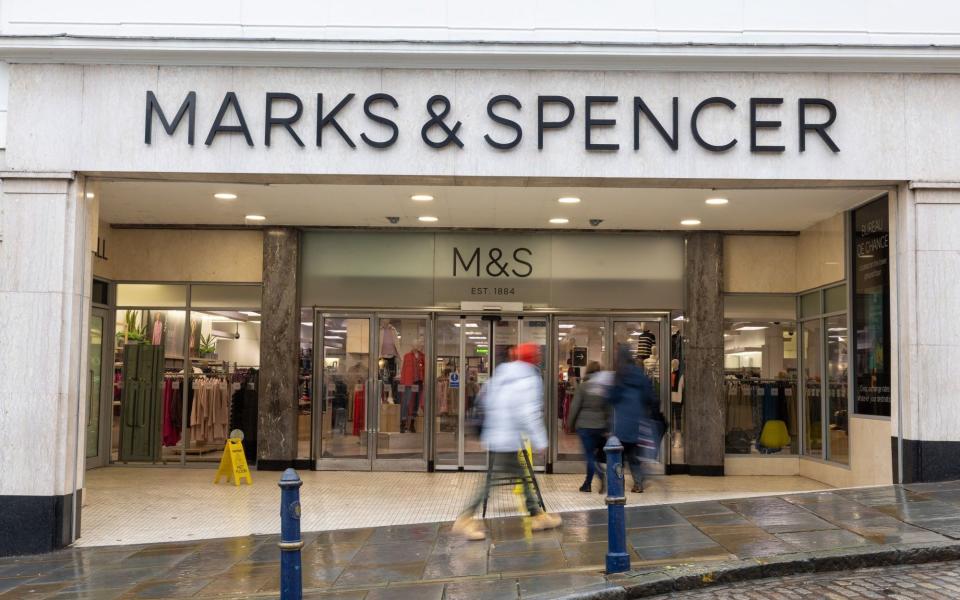‘Woke’ companies risk inciting ‘hostile’ public, research finds

Corporate culture wars are making the public “hostile”, companies have been warned as a major piece of research is launched into the rise of “woke” in the workplace.
Britons are “cynical” and “tired” of attempts by big business to force political views on employees and customers, according to Policy Exchange.
New polling by the think-tank reveals that the majority of the public (58 per cent) reject the suggestion that companies should be able to demand that their employees declare gender pronouns.
Gender pronouns on the rise
Britain’s biggest employers are increasingly asking staff to use pronouns to reflect their gender identity, with the City making particular efforts to shake off its “pale, male and stale” image.
The use of “she/her/her”, “he/him/his” or “they/them/their” is fast becoming common on name badges or signatures at the end of work emails, as companies from banks to law firms embrace the trend.
But the polling found that only 16 per cent agree that companies should be able to demand employees declare their gender pronouns.
When asked whether people support companies firing employees because they share controversial but legal beliefs on social media outside of working hours, only 12 per cent support such actions.
Only one in five voters think companies should be able to refuse to do business with customers who hold beliefs they disagree with.
‘Lecturing them about political issues’
Matt Goodwin, politics professor at Kent University, who carried out the polling, said a growing number of companies are now “adrift” from the wider public by “lecturing them about political issues and being seen to stifle their free speech and expression”.
He said: “Ask ordinary people what they think about companies making political statements or forcing their workers and customers to express allegiance to particular belief systems and you will soon encounter a public that is deeply sceptical if not openly hostile to this creeping moral righteousness.”
The polling also found that 10 per cent of the public think companies primarily make statements about political issues because they genuinely believe in them.
The research comes amid concern that companies are adopting political positions on certain issues.
In November, Marks & Spencer diversity managers started rolling out staff pronoun badges as part of a nationwide drive.
Employees at M&S stores and offices can have their preferred pronoun printed on their badges, which feature the M&S logo, a first name and the option of pronouns, including “He/Him/His”, “She/Her/Hers” and “They/Them/Their”.

Meanwhile, ice-cream company Ben & Jerry’s has faced criticism for publishing a to-do list for Suella Braverman, Home Secretary, suggesting she should “scrap the Rwanda plan” and take dessert breaks.
The firm’s UK Twitter account tweeted a message of congratulations to Ms Braverman, accompanied with the image of a list, including various objectives for her first day in the role on Sept 7, such as to “introduce safe routes to the UK for people seeking asylum” and “lift the ban and give people seeking asylum the right to work”.
Last September, online payments giant PayPal temporarily shut down the account of a parents’ group that fought to keep schools open during the pandemic owing to “the nature of its activities”.
UsForThem was left unable to access thousands of pounds in donations from its account after PayPal announced it was discounting service to one of the group’s directors “in accordance with” the technology company’s user agreement.
PayPal also shut down the accounts of the Free Speech Union, its founder Toby Young, and his opinion and news website the Daily Sceptic.
It led to dozens of Tory MPs and peers accusing the online transfer giant of launching an “orchestrated” and “politically motivated” attack on groups that champion free speech.
Sacked for sharing Billy Connolly
An Asda till worker was sacked in 2019 after sharing a Billy Connolly sketch about religion on his Facebook page.
Colleagues complained that the comments in the skit were anti-Islamic and, despite apologising, he was fired for gross misconduct for breaching the company’s social media policy.
An Asda spokesman said at the time that they “do not tolerate any form of discrimination from colleagues or customers and take such behaviour extremely seriously.”
Policy Exchange carried out the polling to launch a new research project on “Corporate Culture Wars in the United Kingdom”, which will explore the rise of “woke capitalism”.
This includes self-censorship in the workplace and reports of political discrimination against employees, consumers, or account holders because they are deemed to hold “controversial” beliefs.

